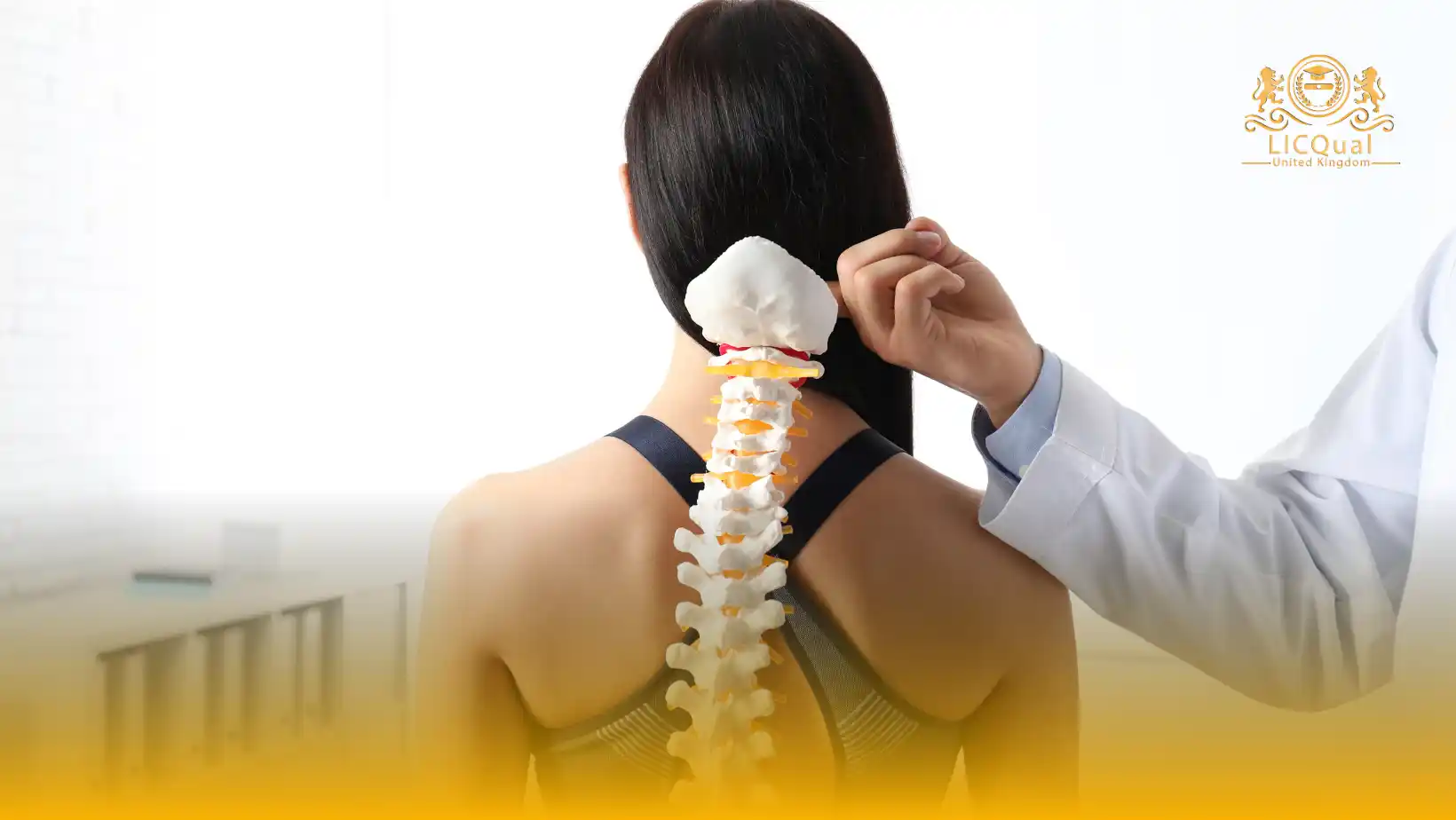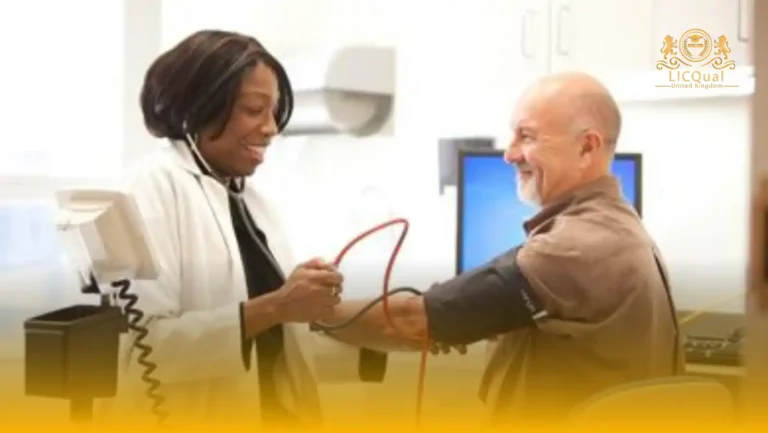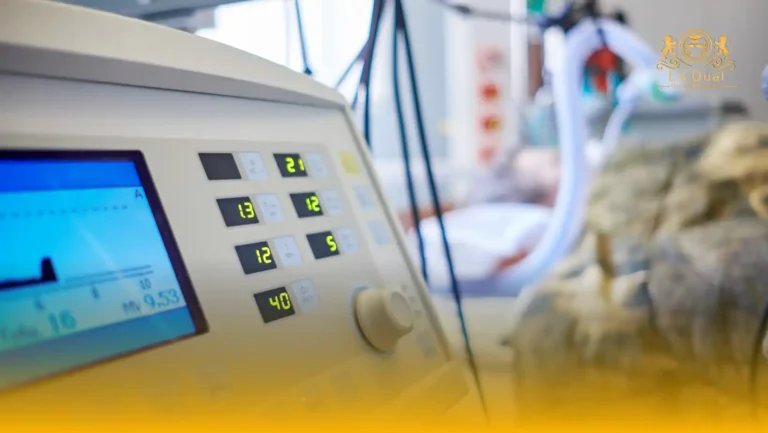The LICQual Level 7 Postgraduate Diploma in Orthopedics (PgD Ortho) is a highly specialised qualification designed for experienced healthcare professionals seeking to advance their expertise in orthopedics. This postgraduate diploma is not intended for fresh entrants but is tailored for learners who wish to deepen their knowledge, enhance their clinical skills, and elevate their career prospects within the field of orthopedics.
Through this qualification, learners will gain a comprehensive understanding of advanced orthopedic practices, diagnostic techniques, surgical procedures, and patient management strategies. The course emphasises evidence-based approaches and encourages learners to critically evaluate contemporary research, applying best practices to clinical decision-making and patient care. Additionally, it provides significant opportunities for Continuing Professional Development (CPD), ensuring learners remain at the forefront of their profession.
Centres delivering the LICQual Level 7 PgD Ortho must uphold rigorous standards to ensure the highest quality of education. This includes employing competent and qualified staff with extensive experience in orthopedics, alongside providing all necessary teaching materials, clinical resources, and practical learning opportunities. Such standards guarantee that learners receive an engaging, effective, and professionally relevant learning experience.
By completing this postgraduate diploma, learners will not only enhance their practical skills and theoretical knowledge but also strengthen their professional credibility, positioning themselves for leadership roles and advanced clinical responsibilities in orthopedic care. This qualification represents a significant step forward for dedicated professionals committed to excellence in their field.
Course Overview
Qualification Title
LICQual Level 7 Postgraduate Diploma in Orthopedics (PgD Ortho)
Total Units
6
Total Credits
120
GLH
600
Qualification #
LICQ2200958
Qualification Specification
To enroll in the LICQual Level 7 Postgraduate Diploma in Orthopedics (PgD Ortho), applicants must meet the following criteria:
|
Qualification# |
Unit Title |
Credits |
GLH |
|---|---|---|---|
|
LICQ2200958-1 |
Advanced Orthopedic Anatomy and Physiology |
20 |
100 |
|
LICQ2200958-2 |
Orthopedic Pathophysiology and Disease Management |
20 |
100 |
|
LICQ2200958-3 |
Advanced Orthopedic Surgical Techniques |
20 |
100 |
|
LICQ2200958-4 |
Orthopedic Rehabilitation and Physiotherapy |
20 |
100 |
|
LICQ2200958-5 |
Research Methods and Evidence-Based Orthopedic Practice |
20 |
100 |
|
LICQ2200958-6 |
Leadership, Ethics, and Professional Practice in Orthopedics |
20 |
100 |
By the end of this course, learners will be able to:
Unit 1: Advanced Orthopedic Anatomy and Physiology
By the end of this unit, learners will be able to
Analyse the detailed structure and function of the musculoskeletal system, including bones, joints, muscles, ligaments, and tendons
Evaluate the biomechanical principles governing human movement and musculoskeletal function
Apply anatomical and physiological knowledge to diagnose and manage orthopedic conditions
Interpret clinical cases using advanced anatomical and physiological understanding
Unit 2: Orthopedic Pathophysiology and Disease Management
By the end of this unit, learners will be able to
Critically examine the pathophysiology of common and complex orthopedic disorders
Assess diagnostic techniques and interpret clinical data for orthopedic conditions
Develop evidence-based management plans for a range of musculoskeletal disorders
Evaluate treatment outcomes and modify care strategies based on patient response
Unit 3: Advanced Orthopedic Surgical Techniques
By the end of this unit, learners will be able to
Demonstrate knowledge of advanced orthopedic surgical procedures, including minimally invasive techniques
Assess surgical risks, plan operative strategies, and ensure patient safety throughout procedures
Critically evaluate surgical outcomes using evidence-based methods
Integrate theoretical knowledge with practical surgical decision-making in clinical scenarios
Unit 4: Orthopedic Rehabilitation and Physiotherapy
By the end of this unit, learners will be able to
Design and implement effective post-surgical rehabilitation programmes
Evaluate physiotherapy techniques to optimise functional recovery and mobility
Assess patient progress and adapt rehabilitation plans according to individual needs
Apply pain management strategies and monitor patient quality of life during recovery
Unit 5: Research Methods and Evidence-Based Orthopedic Practice
By the end of this unit, learners will be able to
Critically appraise orthopedic research literature and clinical studies
Design and conduct research using appropriate quantitative and qualitative methods
Apply evidence-based principles to inform clinical decision-making
Interpret research findings and translate them into improved patient care and practice
Unit 6: Leadership, Ethics, and Professional Practice in Orthopedics
By the end of this unit, learners will be able to
Analyse ethical issues and professional responsibilities in orthopedic practice
Demonstrate leadership and management skills in clinical and multidisciplinary settings
Evaluate healthcare policies and professional guidelines impacting orthopedic practice
Develop strategies for continuous professional development and lifelong learning
The LCQual Level 7 Postgraduate Diploma in Orthopedics (PgD Ortho) is designed for both experienced healthcare professionals and beginners who want to build a career in musculoskeletal medicine. This internationally recognized Level 7 Orthopedics qualification provides CPD accredited training, practical skills, and evidence-based knowledge. Whether you are a doctor, nurse, physiotherapist, or a career changer entering healthcare, this program equips you with the expertise to deliver safe and effective orthopedic care.
1. Medical Doctors and Physicians
- Strengthen expertise in diagnosing and managing complex orthopedic conditions
- Gain CPD accredited postgraduate training in musculoskeletal medicine
- Expand practice offerings with advanced orthopedic services
- Build authority with an internationally recognized Level 7 qualification
- Meet patient demand for evidence-based orthopedic treatments
2. Nurses and Mid-Level Practitioners
- Transition into orthopedics with structured postgraduate training
- Learn advanced diagnostic and patient management techniques
- Increase career opportunities in hospitals, clinics, and private practice
- Develop confidence in delivering safe and effective orthopedic care
- Earn a globally recognized diploma to enhance professional credibility
3. Physiotherapists and Allied Health Professionals
- Diversify practice by adding orthopedic specialization
- Master musculoskeletal assessment and rehabilitation strategies
- Attract new patients seeking advanced orthopedic support
- Gain CPD accredited certification for career advancement
- Position yourself as a trusted provider in orthopedic care
4. Beginners Entering Healthcare
- Start a career in orthopedics with guided, step-by-step modules
- Learn core skills in patient assessment, diagnosis, and treatment planning
- Access internationally accredited postgraduate training without prior specialization
- Build a strong foundation for future advanced qualifications
- Join one of the best postgraduate orthopedics courses UK for beginners
5. Career Changers
- Transition into healthcare and orthopedics from other industries
- Acquire practical skills in musculoskeletal medicine and patient care
- Gain global recognition with a Level 7 postgraduate diploma
- Explore new opportunities in hospitals, clinics, and private practices
- Build a rewarding career in a fast-growing medical specialty
6. International Healthcare Professionals
- Earn a qualification recognized across global healthcare systems
- Access CPD accredited training aligned with international standards
- Strengthen career prospects in orthopedics worldwide
- Learn evidence-based techniques for safe patient care
- Expand practice opportunities in both local and international markets
7. Professionals Seeking Academic and Career Growth
- Advance knowledge with evidence-based postgraduate orthopedic training
- Strengthen EEAT compliance with authoritative certification
- Gain expertise in orthopedics for career progression
- Build credibility with patients and employers through accredited learning
- Position yourself as a leader in musculoskeletal education and clinical practice
To deliver the LICQual Level 7 Postgraduate Diploma in Orthopedics effectively and ensure high-quality learning outcomes, centres must meet the following requirements:
- Qualified and Experienced Staff: Centres must employ trainers and assessors with recognised qualifications and substantial professional experience in orthopedics, surgery, or related healthcare fields.
- Adequate Learning Resources: Centres must provide access to up-to-date textbooks, journals, digital learning platforms, and other reference materials relevant to advanced orthopedic practice.
- Clinical Facilities: Practical training must be supported by suitable clinical facilities, including simulation labs, surgical equipment, and rehabilitation resources for hands-on learning.
- Assessment and Evaluation Tools: Centres must have robust systems for formative and summative assessments, ensuring learners meet the required academic and practical standards.
- Health and Safety Compliance: All learning environments must adhere to relevant health and safety regulations, ensuring the safety of learners during practical sessions and clinical placements.
- Continuing Professional Development (CPD) Support: Centres should encourage and facilitate learners’ ongoing professional development by providing access to workshops, seminars, and research opportunities.
- Quality Assurance Systems: Centres must maintain structured policies and procedures for quality assurance, learner support, and continuous improvement to uphold international training standards.
By meeting these requirements, centres ensure that learners receive a comprehensive, practical, and professionally relevant education, enabling them to excel in advanced orthopedic practice.
Assessment and Verification
All units within this qualification are subject to internal assessment by the approved centre and external verification by LICQual. The qualification follows a criterion-referenced assessment approach, ensuring that learners meet all specified learning outcomes.
To achieve a ‘Pass’ in any unit, learners must provide valid, sufficient, and authentic evidence demonstrating their attainment of all learning outcomes and compliance with the prescribed assessment criteria. The Assessor is responsible for evaluating the evidence and determining whether the learner has successfully met the required standards.
Assessors must maintain a clear and comprehensive audit trail, documenting the basis for their assessment decisions to ensure transparency, consistency, and compliance with quality assurance requirements.







